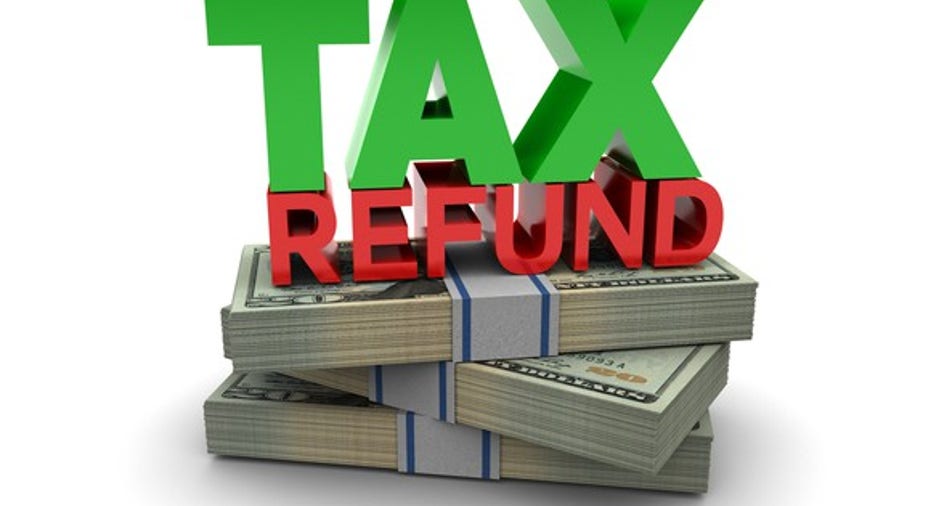5 Ways to Make Your Tax Refund Bigger

Image source: Getty Images.
It can be helpful and even money-saving to think about taxes at times other than April. For example, it's reasonable to wonder if you could make your tax refund any bigger. The good news is that there are ways to do so, though there's a downside to a big tax refund, too.
How to make your tax refund bigger
Below are just some of the ways to beef up your tax refund:
- Adjust your withholding. When you start a job, you'll fill out a W-4 form, specifying a number of allowances you're claiming. The fewer allowances, the more money your employer will withhold for taxes -- and the larger your refund might be. You can adjust the allowances you claim at any time during the year, to change how much is withheld. Image source: Getty Images.
- See if it's worth itemizing your deductions. Many taxpayers take the standard deduction when preparing their tax return. It shrinks their taxable income and can therefore lead to a bigger refund. If you have sufficient qualifying deductions, though, you might be able to do better than the standard deduction. Keep good records of your spending throughout the year -- such as on medical expenses, charitable contributions, work-related expenses, state and local taxes paid, and more -- and tally up your deductions to see where you stand.
- Look into any above-the-line deductions (i.e., those that don't require itemizing) and tax credits that you can claim, as they can significantly shrink your taxable income. Above-the-line deductions exist for expenses such as alimony payments, self-employment taxes, IRA contributions, school supplies, student-loan interest paid, and more. Tax credits shrink your taxable income on a dollar-for-dollar basis and they're available for all kinds of things, such as education expenses, energy-efficient home improvements, the adoption of children, the care of children and dependents, and much more. A particularly valuable credit, if you qualify, is the Earned Income Tax Credit, which shrinks some folks' income by more than $6,000.
- Contribute to retirement accounts. By making contributions to a traditional IRA or 401(k) account, you can reduce your taxable income significantly. IRA contribution limits in 2016, for example, are $5,500 for most folks and $6,500 for those 50 or older. 401(k) contribution limits are $18,000 for most people and $24,000 for those 50 or older. If you can sock away $10,000 in such accounts this year, you'll reduce your taxable income by that hefty sum, enough to inflate your tax refund by a sizable amount. (Remember that Roth IRAs and Roth 401(k) accounts have their own appeal, offering tax-free withdrawals in retirement. Weigh the costs and benefits of each accordingly.)
- Pay some of your next-year expenses early. Since expenses such as mortgage interest paid and property taxes paid are deductible, you might want to pay some that you'd ordinarily pay in January in December instead. That way, they will count for 2016 and can boost the deductions you take -- thereby boosting your tax refund as well. You might even also move up some medical expenses, and perhaps make some charitable contributions a few months earlier than you planned to.
Image source: Getty Images.
Why a big refund is and isn't so great
Once you've plumped up your tax refund, you might be delighting in the thought of thousands of dollars soon coming your way. Think of this, though: A big refund means that Uncle Sam has been holding a lot of your money for you, without your being able to save or spend it. In a sense, you have given him a big loan, for free. The ideal scenario is that come tax time, you neither owe much to nor expect much back from the IRS. That would mean that you're having the right amount withheld from your paycheck.
On the other hand, creating a big refund can be a great way for those who have trouble saving money to do so. By generating a big refund check, you'll receive a hefty windfall once a year and you can park it directly in your long-term savings. It's not the most efficient way to save, but it can be effective.
And finally, on a related note, file your tax return as early as you can. The earlier your return is filed, the sooner you're likely to get your refund. And early filers can thwart tax identity thieves out there who sometimes try to file returns in our names in order to collect our refunds.
The $15,834 Social Security bonus most retirees completely overlook If you're like most Americans, you're a few years (or more) behind on your retirement savings. But a handful of little-known "Social Security secrets" could help ensure a boost in your retirement income. For example: one easy trick could pay you as much as $15,834 more... each year! Once you learn how to maximize your Social Security benefits, we think you could retire confidently with the peace of mind we're all after.Simply click here to discover how to learn more about these strategies.
Longtime Fool specialistSelena Maranjian, whom you can follow on Twitter, owns no shares of any company mentioned in this article.Try any of our Foolish newsletter services free for 30 days. We Fools may not all hold the same opinions, but we all believe that considering a diverse range of insights makes us better investors. The Motley Fool has a disclosure policy.



















